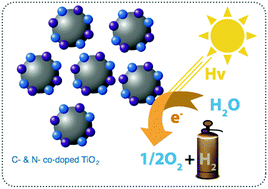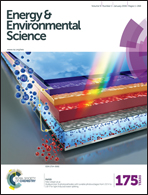Ionic liquids as tailored media for the synthesis and processing of energy conversion materials
Abstract
Though in its infancy stage, ionic liquid (IL)-assisted synthesis and processing of energy conversion materials is triggering a wide interest to eco-friendly production of already existing and novel materials. ILs possess the potential of overcoming the limitations of conventional synthesis approaches. Due to their unique characteristics such as high chemical and thermal stabilities, nearly negligible vapour pressure, wide electrochemical window, broad liquidus range, tunable polarity, hydrophobicity/hydrophilicity, ionic liquids are opening new frontiers in the ionothermal synthesis of tailored materials, enabling products that are difficult or impossible to achieve by using other, more conventional preparation routes. Trying to offer an exhaustive review on the burgeoning role of ionic liquids for the synthesis and processing of energy conversion materials, this perspective article focuses on IL-assisted production of electrode materials and catalysts for fuel cells, photo-induced water splitting and dye-sensitized solar cells. A brief excursion on the use of ionic liquids for the processing of natural fuels for biofuel cells is also made. The state-of-the-art research endeavours are firstly evaluated, followed by the exploration of future research directions with some thoughts on emerging challenges and opportunities.



 Please wait while we load your content...
Please wait while we load your content...